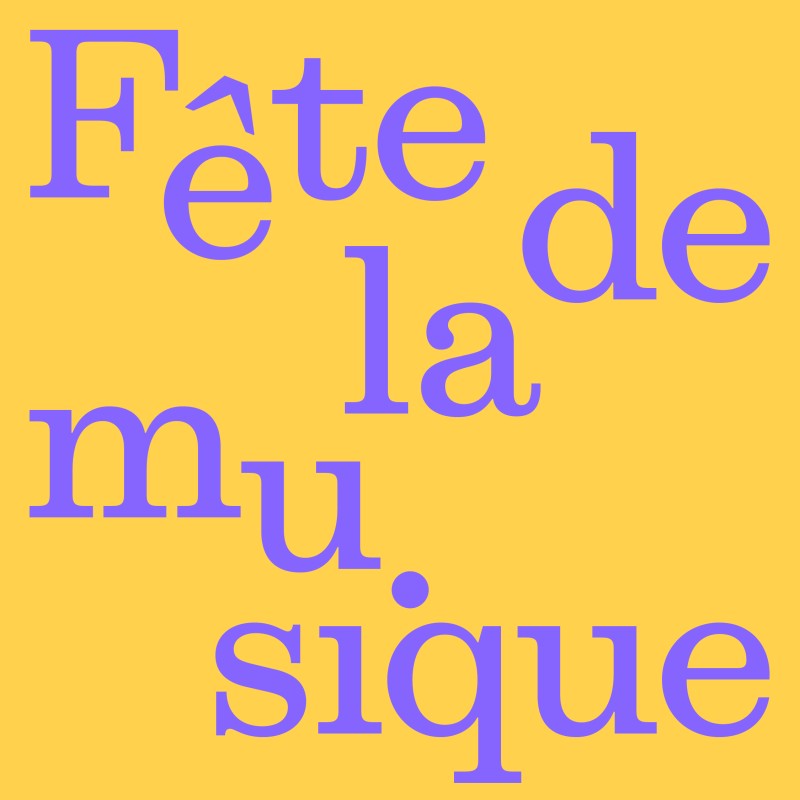BIBLIOTOPIA 2018
Week-end des littératures autour du monde
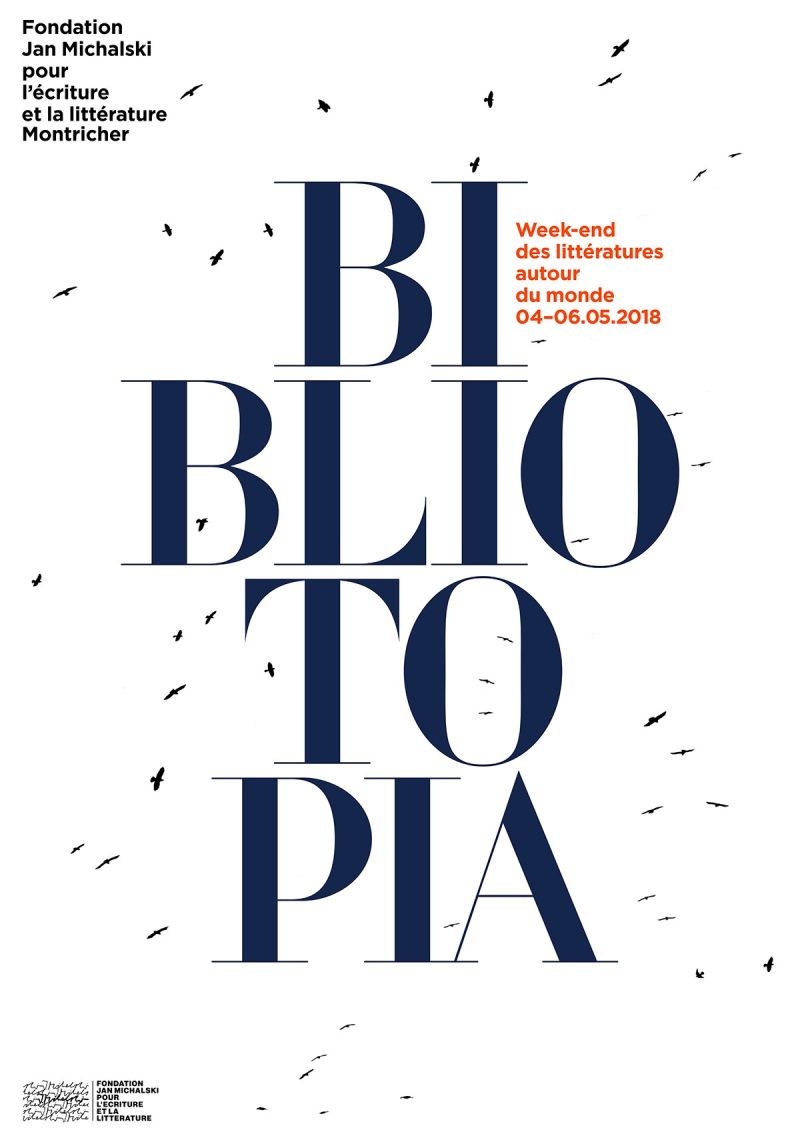
Event completed
Listen to voices from elsewhere, share views from beyond borders, explore the imaginary, journey the world with our writers: Tahmima Anam, Tahar Ben Jelloun, György Dragomán, Xiaolu Guo, Yasmina Khadra, Gazmend Kapllani, Cécile Ladjali, Linda Lê, Katja Petrowskaja, Vladimir Vertlib…
and with the musicians Noa and Maya Youssef.
Program of Friday May 4th
6.30 pm Cécile Ladjali and Linda Lê in conversation
Writing and Literature; Places of freedom
Moderation: Salomé Kiner
In French
Biographies
Cécile Ladjali, born in 1971 in Lausanne of an Iranian mother, was brought up in France by adoptive parents. A graduate in modern literature, her doctorate was on the androgynous figure in 19thcentury literature. She teaches French at a secondary school and at Sorbonne-Nouvelle University. A novelist, playwright, and essayist, Cécile Ladjali published Les souffleurs (Actes Sud, 2004), La Chapelle Ajax (2005), Louis et la jeune fille (2006), Shâb ou la nuit (2013, prix du Roman Métis des Lycéens), Illettré (2015) and Bénédict (2018), where she explores themes of dual belongings, the quest for origins and the power of words. She also published Éloge de la transmission (Albin Michel, 2003), in collaboration with George Steiner, and Mauvaise langue (Seuil, 2007, prix Femina pour la Défense de la langue française). She directs the collection “Le préau” at Actes Sud, which explores new ways of transmitting and acquiring knowledge.
Born in 1963 in Vietnam, Linda Lê arrived in France in 1977, after the Vietnam War. The French language, learnt during her childhood in Saigon, became, if not her homeland, than a free space to explore being attached and being exiled. Her first books appeared when she was very young and were very well received. From 1993, Christian Bourgois became the publisher of her numerous novels, many of them translated and published to great acclaim, amongst them Calomnies (1993), Les dits d’un idiot (1995), Les trois Parques et Voix (1998), Lettre morte (1999), Personne (2003), In memoriam (2007), Cronos (2010, Wepler-Foundation La Poste Award), À l’enfant que je n’aurai pas (Nil, 2011, Renaudot-poche Prize), Lame de fond (2012, among the four finalists for the Goncourt Prize), Par ailleurs (exils) (2015, French Academy Louis Barthou Prize), Roman (2016). Her latest book, Héroïnes, (2017), explores the portraits of three women, who embody Vietnam in exile.
7.30pm Maya Youssef in Concert
Syrian Dreams
With Barney Morse-Brown (cello) and Elizabeth Nott (percussion)
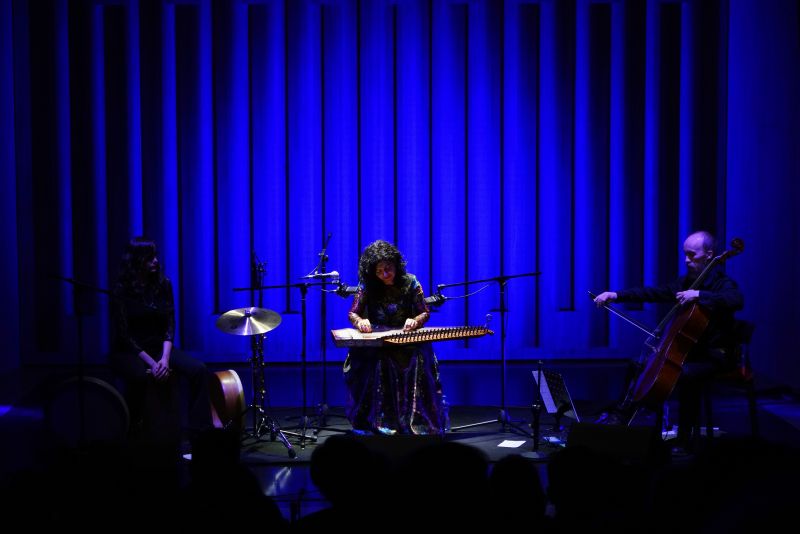
© Wiktoria Bosc
Biography
From Syria, speaker, humanist and virtuoso of the qanun disseminates peace through the healing power of music. One day, aged 9, on her way to the music institute where she was reluctantly studying the violin, the taxi driver was playing a recording of an instrument that blew her mind – it was the qanun. When she told him she was determined to learn it his reply shocked her, but kindled a flame: he told her girls did not play the qanun; it was a man’s instrument played only by men. He laughed at her when she told him she would learn to play it. Now, Damascus born Maya Youssef is hailed as “queen of the qanun”, the 78 stringed Middle Eastern plucked zither. She moved to London under the Arts Council’s “exceptional talent” scheme and has played at the Proms and alongside Damon Albarn. When the war started in Syria, writing music was “no longer a choice” and that was the birth of her highly acclaimed debut album Syrian Dreams (produced by the legendary Joe Boyd). For Maya the act of playing music is the opposite of death; it is a life and hope affirming act. For her, music is a healer and an antidote to what is happening not only in Syria, but in the whole world.
Program for Saturday May 5th
11am Tahmima Anam
Between History and Fiction
Moderation: Matthew Wake
In English, simultaneous interpretation into French
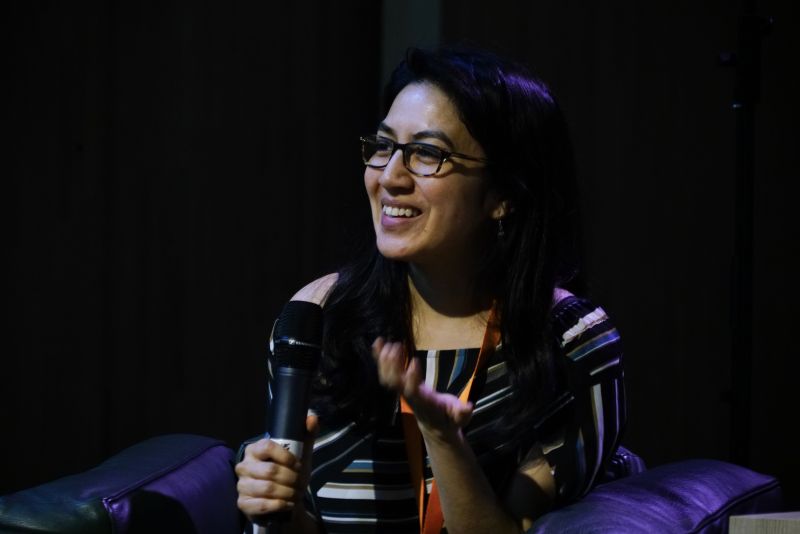
© Wiktoria Bosc
Biography
Tahmima Anam, born in Dhaka, Bangladesh, in 1975, grew up in Paris, New York and Bangkok. She was educated at Mount Holyoke College and Harvard University and now lives in Hackney east London. She is an anthropologist, a novelist and a contributing opinion writer for The New York Times. Her debut novel, A Golden Age, won the 2008 Commonwealth Writers’ Prize for Best First Book and was translated into many languages. With The Good Muslim and The Bones of Grace, Tahmima Anam completed a trilogy exploring the issues of collective and individual identity, inspired by her own Western and Bangladeshi roots. In 2013, she was named one of Granta’s Best of Young British Novelists. In 2016, she was a judge for the 2016 Man Booker International Prize.
12pm Reading
11 am-12.30 pm – Workshop for children
Your children are welcome to attend workshops, where they will be supervised, while you attend BIBLIOTOPIA’s morning events
In collaboration with sept info, swiss website of slow journalism.
From 7 to 10 years up, unaccompanied children
2pm Interview with Yasmina Khadra
Moderation: Pascal Schouwey
In French, simultaneous interpretation into English
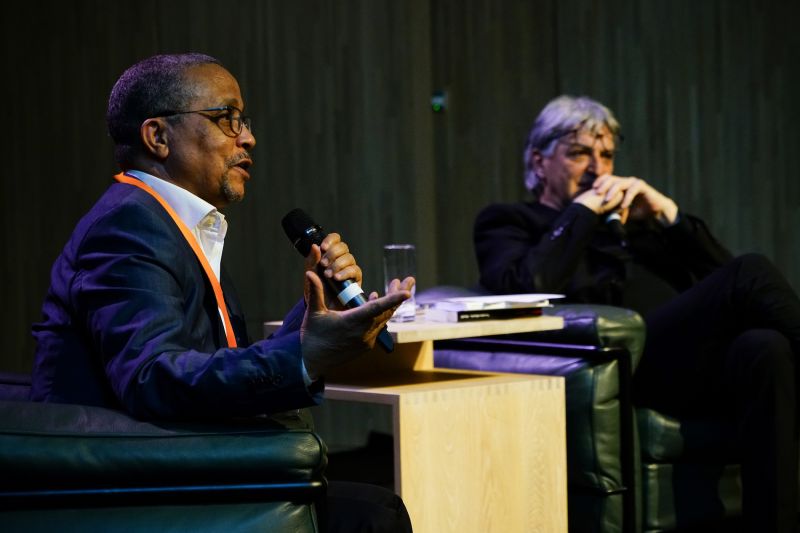
© Wiktoria Bosc
Biography
Yasmina Khadra is the pen name of Mohammed Moulessehoul, born in 1955 in Algerian Sahara. A former Algerian army officer, he began writing under his wife’s name in order to escape military censorship, and revealed his true identity in 2001 after leaving the army and moving to France. Awarded many prizes, his works have been translated to over forty languages and touched millions of readers. The trilogy, The Swallows of Kabul (2002), The Attack (2005) and The Sirens of Bagdad (2006), devoted to recent world conflicts, has been hugely successful. Both The Swallows of Kabul and The Attack were shortlistted for the IMPAC Award. His other well-known books that appeared in English include Wolf Dreams (1999), Cousin K (2003), What the Day Owes the Night, (2008, Best book of LIRE, and France Televisions Prize) and The Dictator’s Last Night (2015). In 2011, the Académie Française awarded him the Grand Prix de Littérature Henri Gal, celebrating his whole body of work. Many of his works were adapted for film, theatre and as graphic novels.
3pm Reading
4pm Xiaolu Guo, Katja Petrowskaja and Gazmend Kapllani in conversation
Language and Identity
Moderation: Michelle Bailat-Jones
In English, simultaneous interpretation into French
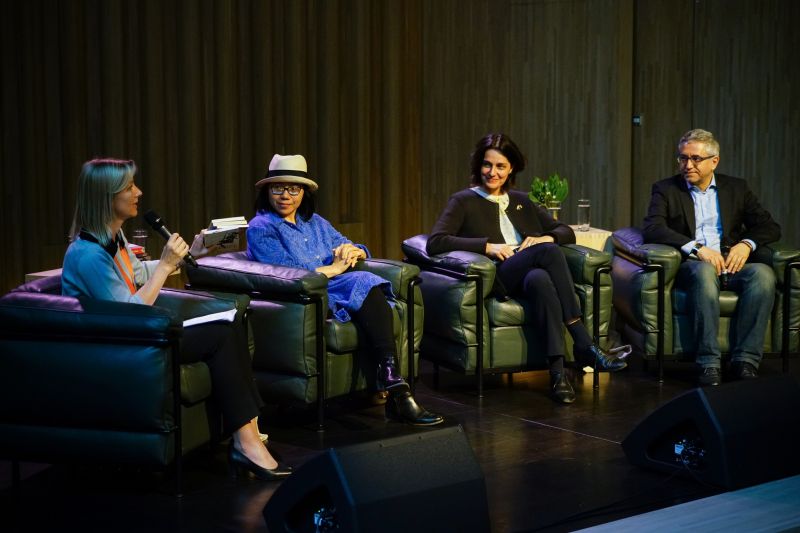
© Wiktoria Bosc
Biographies
Xiaolu Guo was born in 1973 in a small fishing village in southern China. She studied film at the Beijing Film Academy and published six books in China before she moved to London in 2002. The English translation of Village of Stone was shortlisted for the Independent Foreign Fiction Prize and nominated for the International IMPAC Dublin Literary Award. Her first novel written in English, A Concise Chinese-English Dictionary for Lovers, was shortlisted for the Orange Prize for Fiction, and 20 Fragments of a Ravenous Youth, published in 2008, was longlisted for the Man Asian Literary Prize. Her most recent book, Once Upon a Time in the East, won the Autobiography category of the 2017 National Book Critics’ Circle Award. In 2013, she was named as one of Granta’s Best of Young British Novelists. Xiaolu Guo has also directed several award-winning films including She, a Chinese, for which she was awarded the Golden Leopard in Locarno in 2009, and a documentary about London, Late at Night.
Katja Petrowskaja was born in Kiev in 1970, to a Russian-speaking family. She studied literature in Tartu, Estonia and then completed her PhD in Moscow and in Columbia University in New York, and in Stanford University in California. She has lived in Berlin since 1999 where she works as a journalist for various Russian and German media. She won the Ingeborg Bachmann Prize in 2013 for her bestselling first book Maybe Esther, written in German. In this book she researched the origins of her family, exploring the heart of now disappeared Mitteleuropa. Awarded many other European prizes, it was a Spiegel bestseller and has been translated into nineteen languages.
Gazmend Kapllani, born in 1967 in Albania, is a writer, journalist, and scholar. He lived in Athens for over twenty years where he received his PhD in political science and history from Panteion University, exploring the image of Albanians in the Greek press and of Greeks in the Albanian press. Gazmend Kapllani wrote his first three novels in Greek, not his native language. His work centers on themes of migration, minorities, borders, totalitarianism, and how Balkan history has shaped public and private narratives and memories. Kapllani’s novels A Short Border Handbook, My Name is Europe and The Last Page have been translated into many languages. A campaigner for human rights and justice for minorities, he was a victim of intimidation and death threats from the Greek neo-Nazi party, Golden Dawn. Since 2012, he has been living in the US. Currently he teaches Creative Writing and European History at Emerson College in Boston.
5pm Reading
7.30pm Noa in Concert
Beyond Borders
with Gil Dor (guitar)
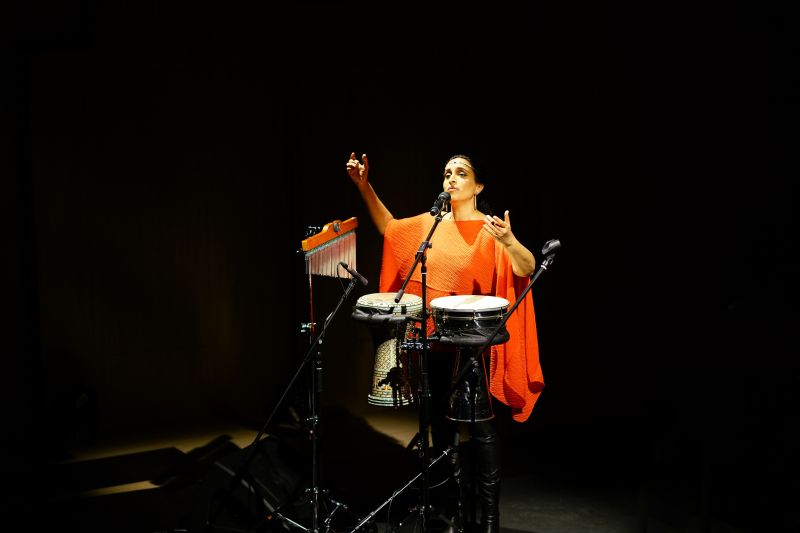
© Wiktoria Bosc
Biography
Achinoam Nini (known also as Noa), Israeli born of Yemenite origin, was raised in the US and resides now in her native country. She is Israel’s leading international singer and songwriter, having shared the stage with superstars such as Sting, Pat Metheny, Quincy Jones, Stevie Wonder, Andrea Bocelli and many more. Together with her longstanding collaborator Gil Dor, she has released over fifteen albums which have sold millions the world over. She wrote lyrics to and recorded the hugely successful theme song for the Academy Award winning film La Vita e Bella. Noa sings in six languages, has collaborated with Symphony Orchestras around the world, and performed in the world’s most prestigious venues, including the Vatican and the White House. Beyond her passionate commitment to music, Noa dedicates much of her time to promoting peace and dialogue between Israel and Palestine and to various social issues, volunteering extensively for organisations in these fields. In particular she was Israel’s first Good Will Ambassador for FAO, the Food and Agriculture Organization of the United Nations in 2003.
Program of Sunday May 6th
11am György Dragomán and Gazmend Kapllani in conversation
Borders, Visible and Invisible
Moderation: Ed Girardet
In English, simultaneous interpretation into French
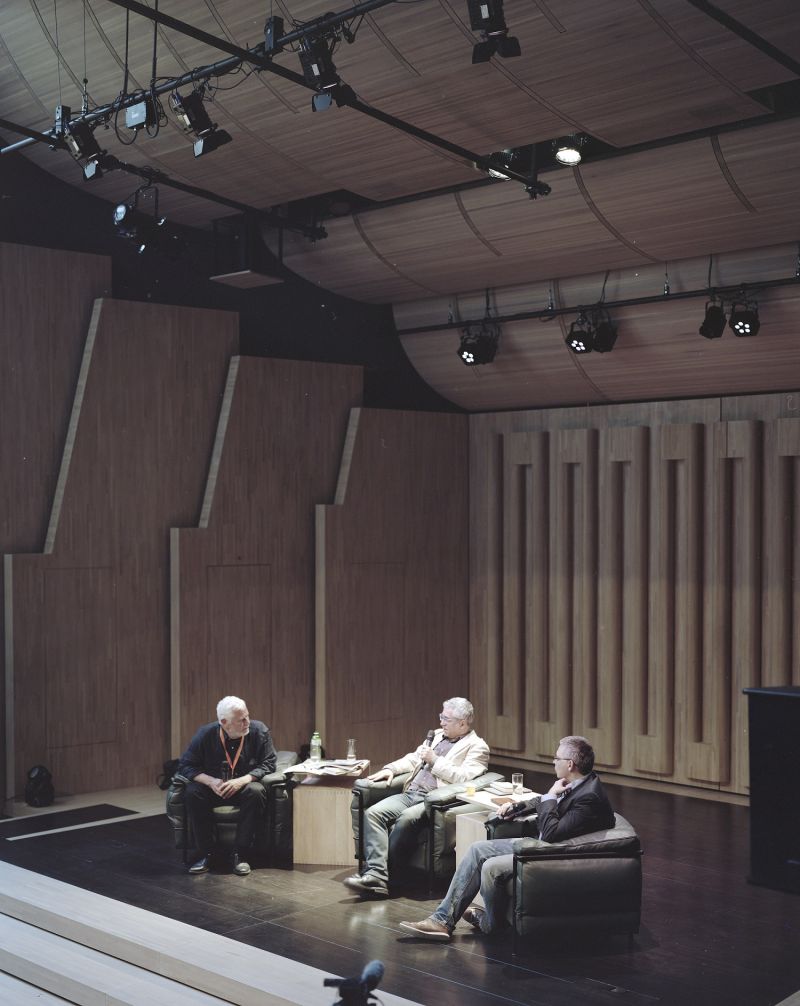
© Tonatiuh Ambrosetti
Biographies
György Dragomán was born in Târgu Mureș/Marosvásárhely, Transylvania, in 1973 and moved to Hungary when he was fifteen. The White King was first published in its original Hungarian in 2005, it won prizes including the Jan Michalski Prize in 2011 and became an iconic bestseller. It is now published in over thirty languages and has been made into a highly acclaimed English-language film. His novel The Bonfire, published in Hungarian in 2015, has been translated into many languages and is awaiting its publication in French and English. György Dragomán works as a translator: among the works he has translated into Hungarian are short stories, essays and texts by James Joyce, I. B. Singer, Neil Jordan, Irvine Welsh and Ian McEwan. He lives in Budapest with his family.
Gazmend Kapllani, born in 1967 in Albania, is a writer, journalist, and scholar. He lived in Athens for over twenty years where he received his PhD in political science and history from Panteion University, exploring the image of Albanians in the Greek press and of Greeks in the Albanian press. Gazmend Kapllani wrote his first three novels in Greek, not his native language. His work centers on themes of migration, minorities, borders, totalitarianism, and how Balkan history has shaped public and private narratives and memories. Kapllani’s novels A Short Border Handbook, My Name is Europe and The Last Page have been translated into many languages. A campaigner for human rights and justice for minorities, he was a victim of intimidation and death threats from the Greek neo-Nazi party, Golden Dawn. Since 2012, he has been living in the US. Currently he teaches Creative Writing and European History at Emerson College in Boston.
11am-12.30pm Workshop for children
Your children are welcome to attend workshops, where they will be supervised, while you attend BIBLIOTOPIA’s morning events.
In collaboration with sept info, swiss website of slow journalism.
From 7 to 10 years up, unaccompanied children
2pm Katja Petrowskaja and Vladimir Vertlib in conversation
Memory and Exile
Moderation: Barbara Fontaine
In German, simultaneous interpretation into French
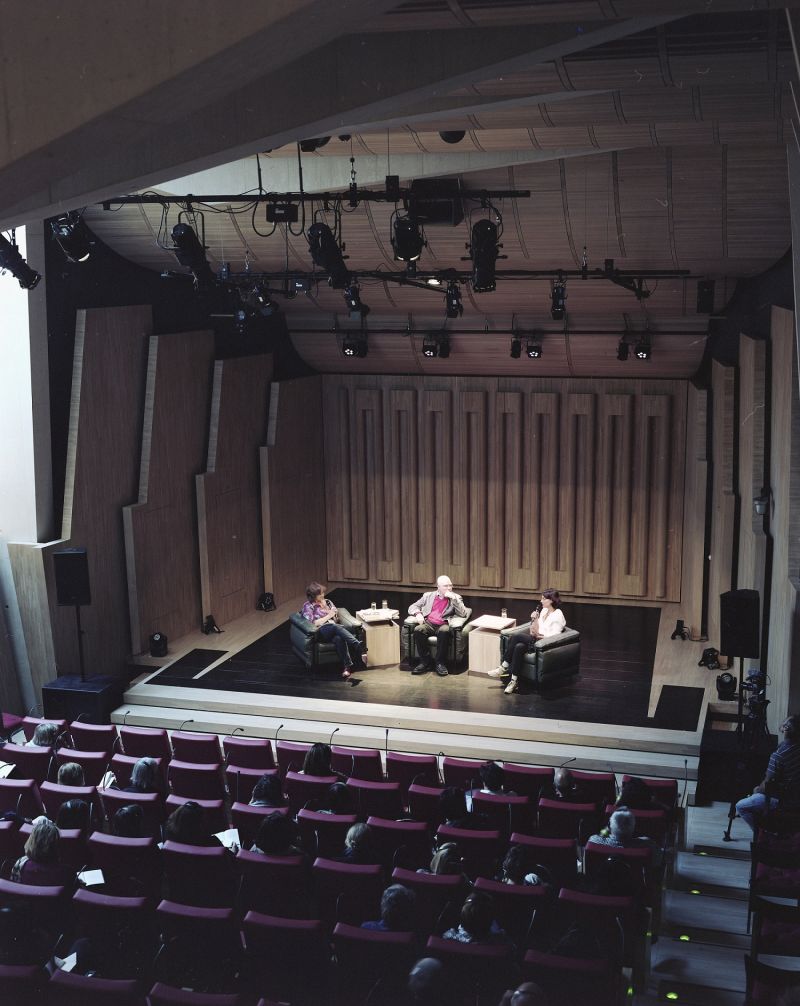
© Tonatiuh Ambrosetti
Biographies
Katja Petrowskaja was born in Kiev in 1970, to a Russian-speaking family. She studied literature in Tartu, Estonia and then completed her PhD in Moscow and in Columbia University in New York, and in Stanford University in California. She has lived in Berlin since 1999 where she works as a journalist for various Russian and German media. She won the Ingeborg Bachmann Prize in 2013 for her bestselling first book Maybe Esther, written in German. In this book she researched the origins of her family, exploring the heart of now disappeared Mitteleuropa. Awarded many other European prizes, it was a Spiegel bestseller and has been translated into nineteen languages.
Vladimir Vertlib, born in 1966 in Leningrad (now St. Petersburg), emigrated with his family to Israel in 1971 before settling in Austria in 1981. He now lives in Salzburg. Awarded the Adalbert von Chamisso Prize (prize for a German-language book written by a non-native speaker) and the Anton Wildgans Award, his works are translated into several languages. His first publication in France, L’étrange mémoire de Rosa Masur (Métailié, 2016), received an excellent critical and public reception. Lucia et l’âme russe appeared this spring 2018. A great storyteller, Vladimir Vertlib writes epic novels spanning 20th century European history, peopled with colourful characters and looking at our collective and individual identity.
3pm Reading
4pm Interview with Xiaolu Guo
Reconstructing Identities in Film and Fiction
Moderation: Ed Girardet
In English, simultaneous interpretation into French
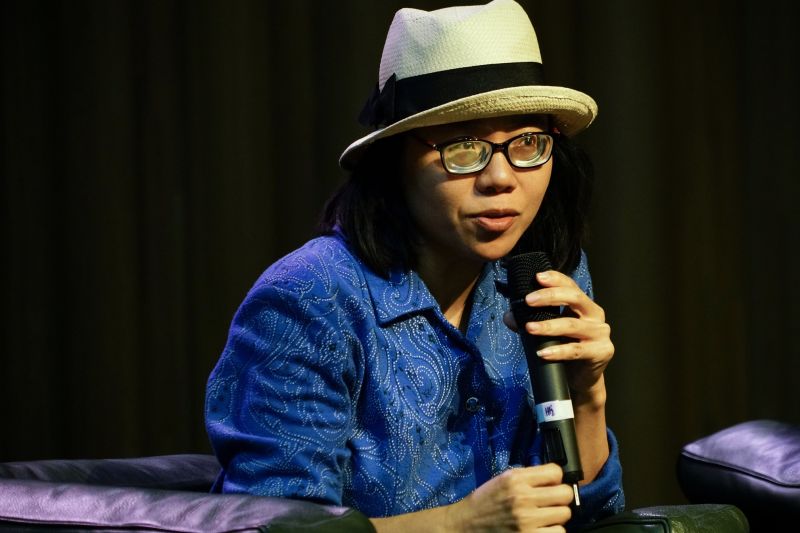
Biography
Xiaolu Guo was born in 1973 in a small fishing village in southern China. She studied film at the Beijing Film Academy and published six books in China before she moved to London in 2002. The English translation of Village of Stone was shortlisted for the Independent Foreign Fiction Prize and nominated for the International IMPAC Dublin Literary Award. Her first novel written in English, A Concise Chinese-English Dictionary for Lovers, was shortlisted for the Orange Prize for Fiction, and 20 Fragments of a Ravenous Youth, published in 2008, was longlisted for the Man Asian Literary Prize. Her most recent book, Once Upon a Time in the East, won the Autobiography category of the 2017 National Book Critics’ Circle Award. In 2013, she was named as one of Granta’s Best of Young British Novelists. Xiaolu Guo has also directed several award-winning films including She, a Chinese, for which she was awarded the Golden Leopard in Locarno in 2009, and a documentary about London, Late at Night.
4.30pm Screening of Xiaolu Guo’s film She, a Chinese
She, a Chinese, by the writer and film-maker Xiaolu Guo, follows the story of Li Mei (Lu Huang), a young woman who journeys from a remote Chinese village through a disastrous factory job in Chongqing to London, finding that “the west” – an idealised place of impossibly glamorous consumer riches – is just as tough as the place she left. According to Xiaolu Guo, she intended “to make a film that challenges the traditional Chinese cinema style and to cross over cultural borders, with a fresh artistic language and a personal voice”. For her “this is a very personal film about a village youth who is trying to break with her old peasant identity”. She, a Chinese masterfully addresses many contemporary issues of surviving, leaving and belonging in a globalized world. The film won the Golden Leopard at Locarno in 2009 and has been admired on the festival circuit.
6.30pm Interview with Tahar Ben Jelloun
Moderation: Pascal Schouwey
In French
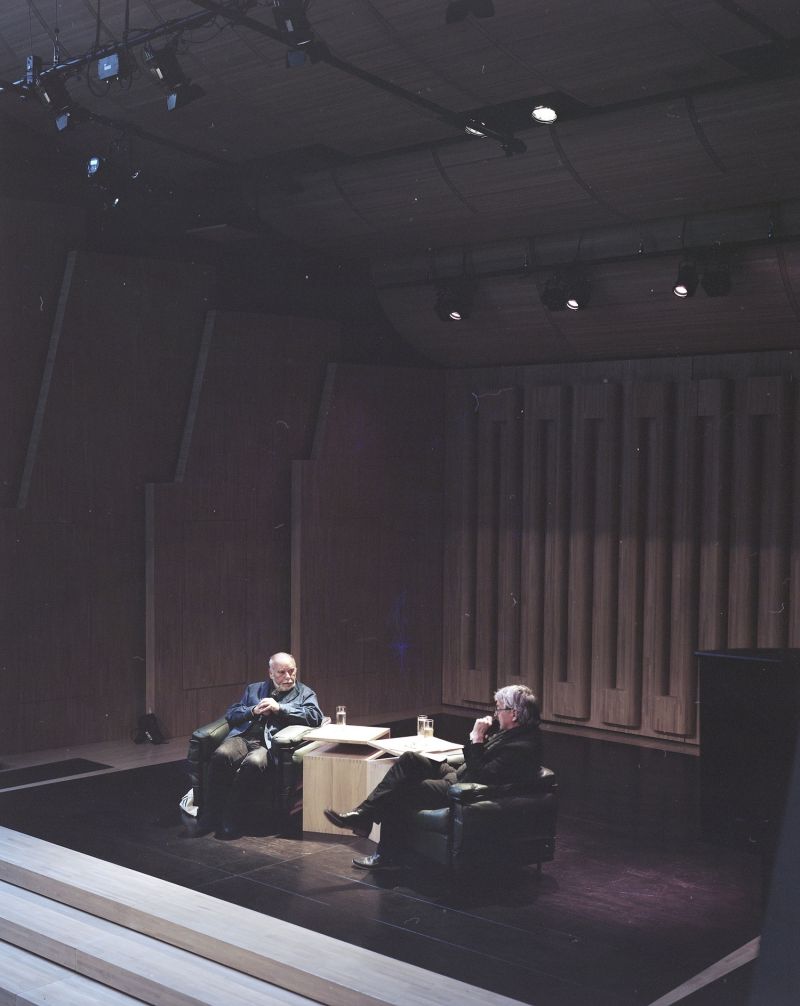
Biography
Tahar Ben Jelloun, born in 1947 in Fez, studied and taught philosophy in Morocco. Having arrived in France in 1971, he published his first novel with the publisher Maurice Nadeau in 1973, followed by poems published with François Maspero. He has written for Le Monde since 1972, then for several European newspapers. Tahar Ben Jelloun is the author of around twenty novels, including The Sand Child (1985), The Sacred Night (1987, which won the Prix Goncourt), This Blinding Absence of Light (2001, International IMPAC Dublin Literary Award 2004), Le mariage de plaisir (2016), as well as educational essays: Racism explained to my daughter (1998, United Nations Prize for Tolerance), Islam explained to children (and their parents) (2002) and Terrorism explained to our children (2015). His books are translated into more than forty languages. His last title, La punition (2018), looks at his experience of captivity in a Moroccan army penal camp. Since 2010, he alternates between writing and painting, and his paintings have been on display in several galleries in Paris, Morocco, Italy and Dubai.
Related








Programme complet en version PDF
BIBLIOTOPIA 2018
Archive
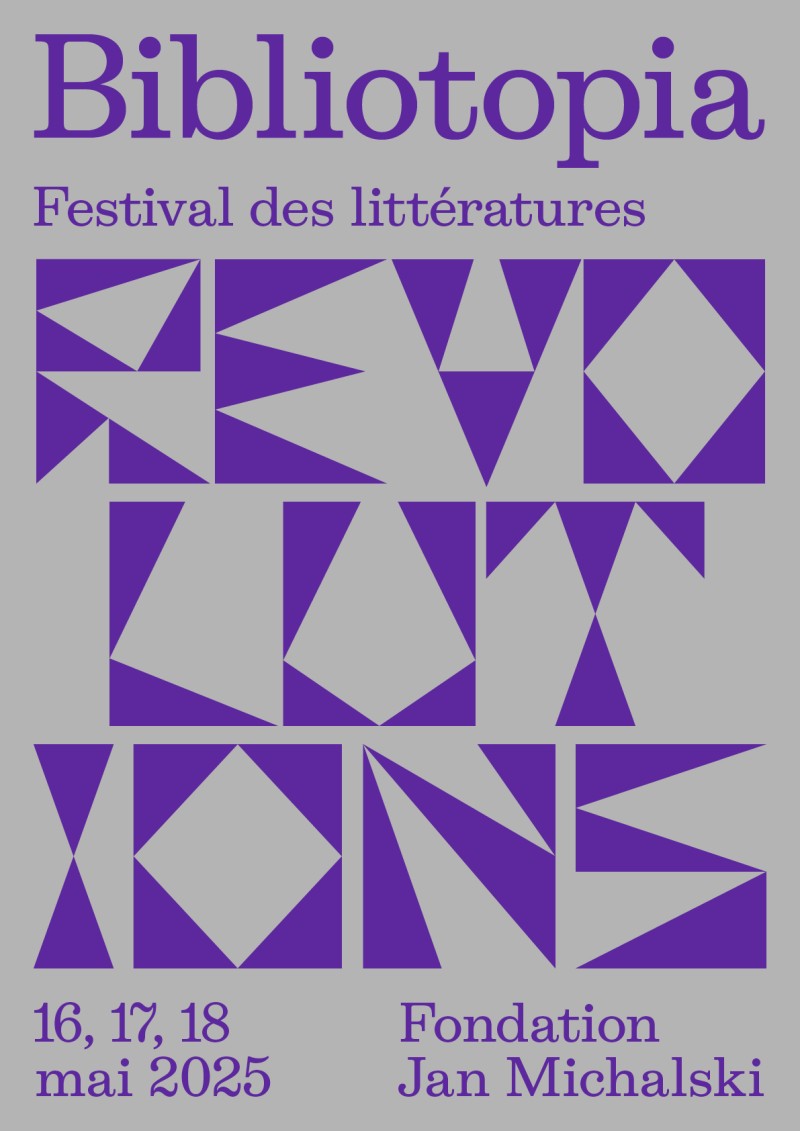
Bibliotopia 2025
Festival of literatures
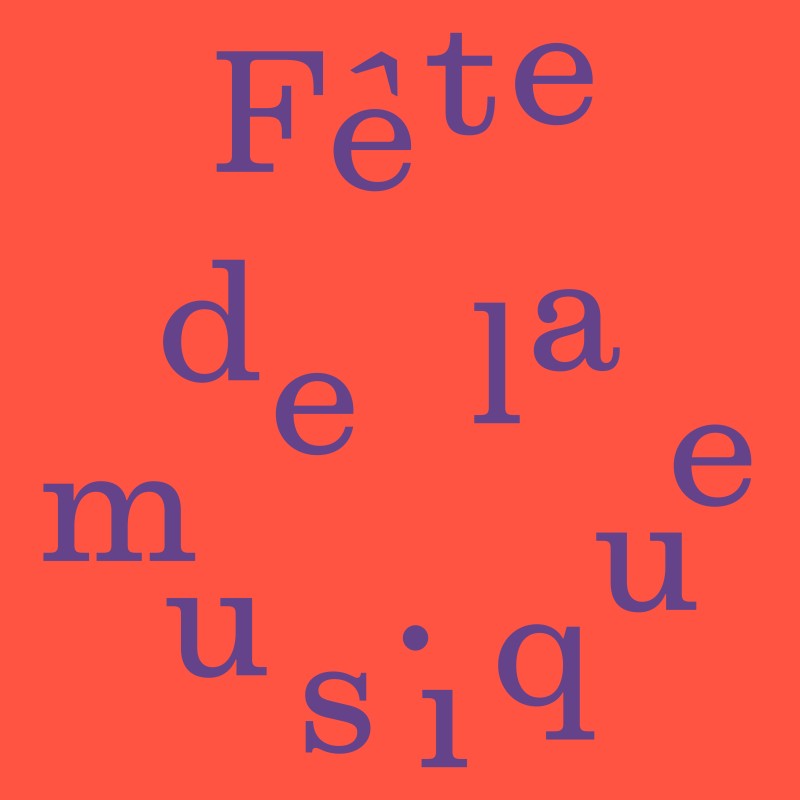
Fête de la musique
avec Keshavara, Czesare et Blanco White en concert !
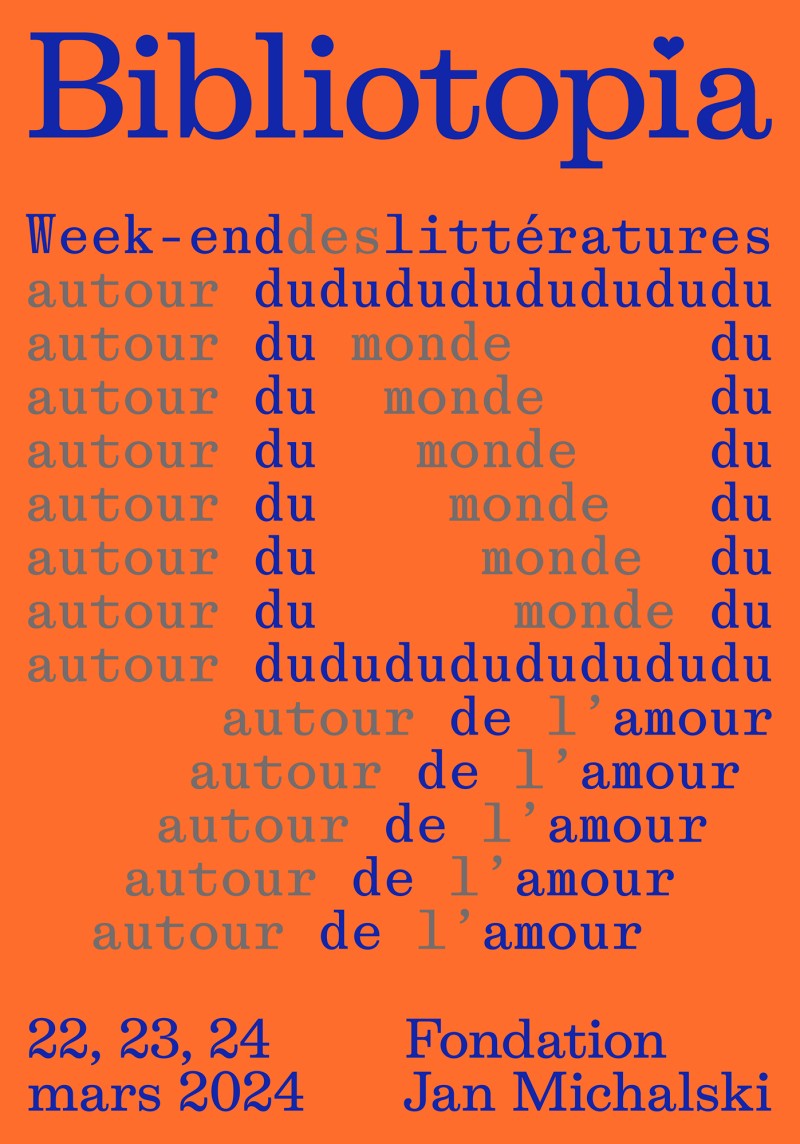
Bibliotopia 2024
Week-end of world literature
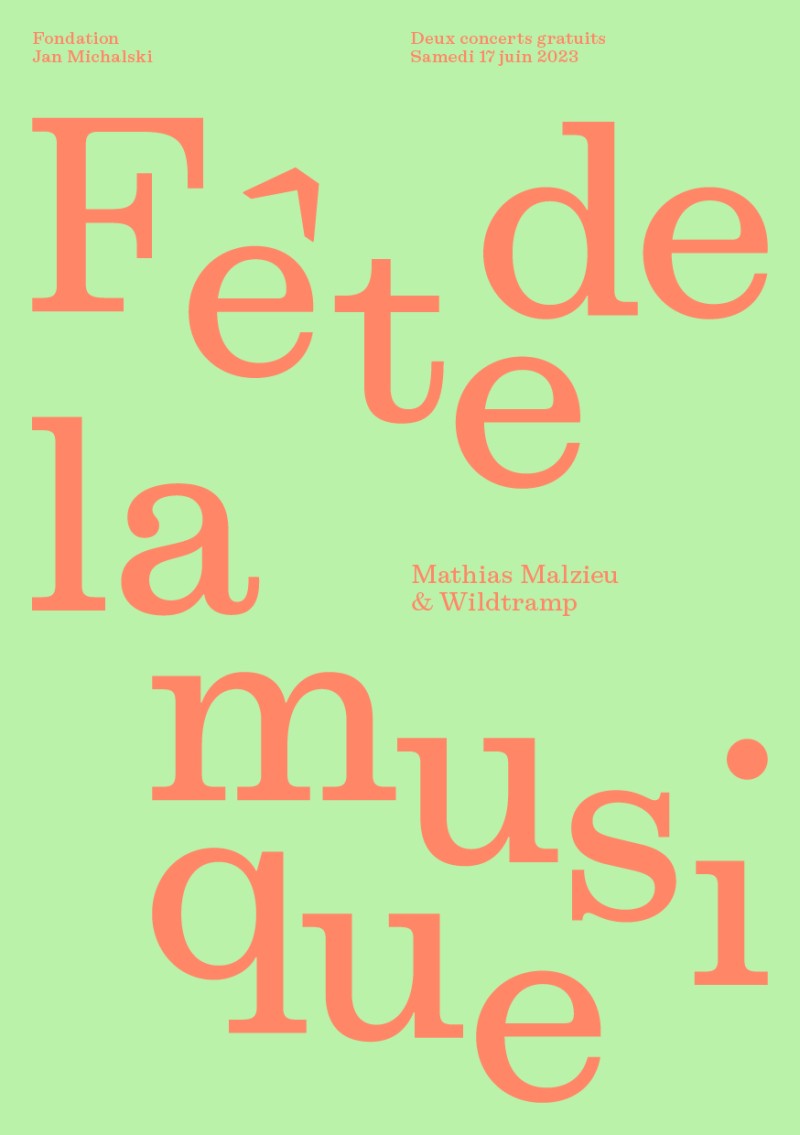
Fête de la musique
Mathias Malzieu & Wildtramp

Bibliotopia 2023
Week-end of world literature
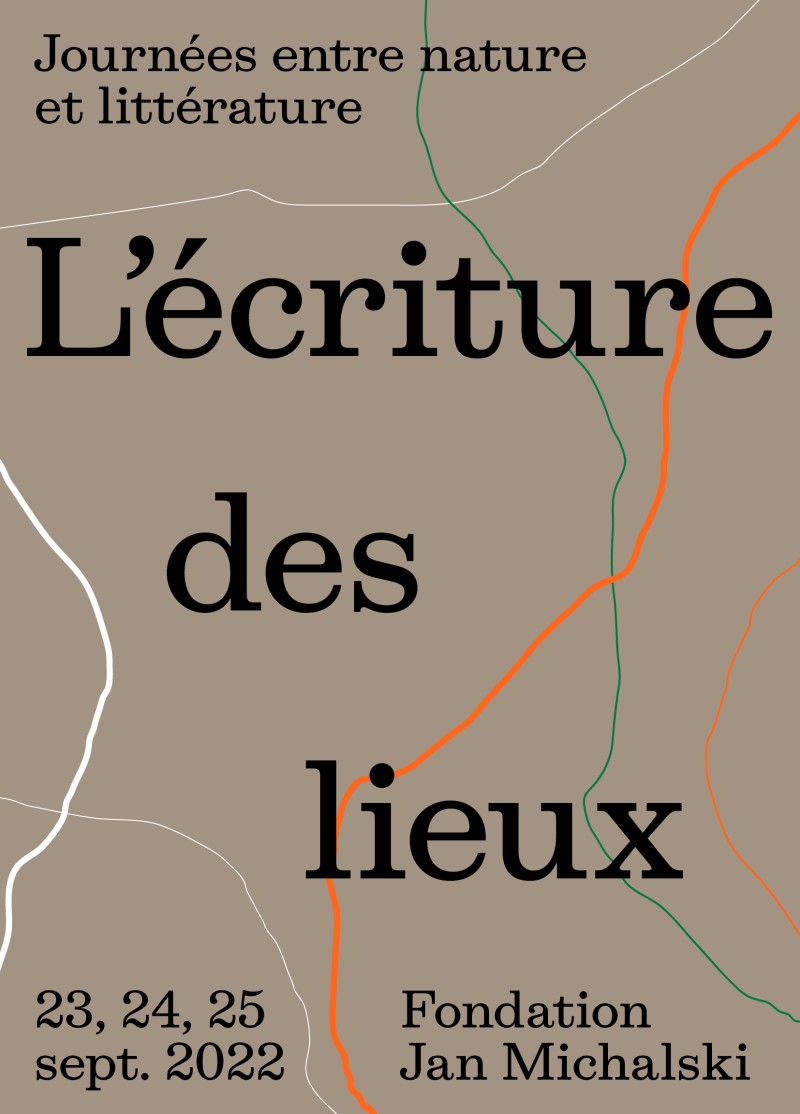
L’écriture des lieux 2022
Journées entre nature et littérature, Autour du loup
BIBLIOTOPIA 2022
week-end of world literature
